Best Sega Genesis/Mega Drive games of all time
We count down the 50 best titles in the 16-bit Sega library
41. Ristar
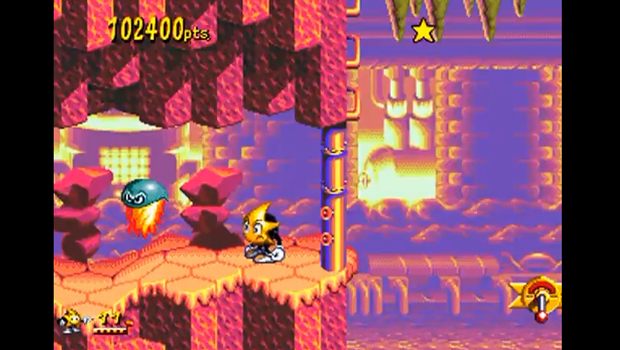
Another video game character that could've had his own Saturday-morning cartoon, Ristar had long stretchy arms he used to grab objects and enemies. That's how he attacked, by slamming himself sumo-style into the enemy. Ouch. Maybe Sonic Team should have designed Ristar with a helmet.
While some critics loved Ristar, it might have been the wrong time for a new platforming series. The Sega Saturn was on the horizon and the era of the Genesis was ending. Gamers just weren't investing in too many new cartridges. Too bad, Ristar was a platformer with personality, worthy of standing next to Mario and Sonic. And his game has aged surprisingly well.
40. Columns
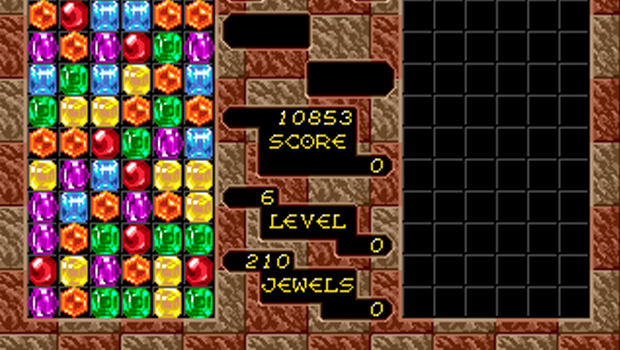
No history of falling-block puzzle challenges would be complete without Columns, one of the first and best Tetris-a-likes to appear in the wake of Alexey Pajitnov's copyright-mired classic. Jay Geertsen's more strategic take on the genre was quickly snapped up by Sega, which proceeded to convert it across the full range of its consoles.
The Genesis version provides the same furious jewel-matching, combo-building play as its smaller-sized equivalents, with full advantage taken here of the 16-bit machines graphical and sound capabilities, resulting in a sumptuous, meditative puzzler that charms right up until the point where it ramps up to hyperspeed and kicks your ass.
39. Revenge of Shinobi
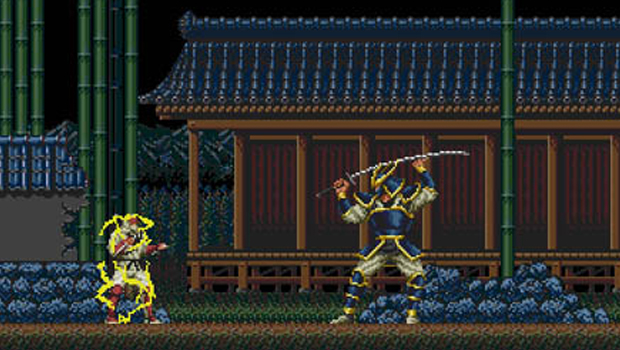
The first Shinobi title on Genesis is a timeless slice of side-on ninja-combat platforming if ever there was one. Mixing traditional Japanese lore and neon-lit sci-fi pyrotechnics, there's scarcely time to pause for breath through Joe Musashi's shuriken-hurling rampage across Japan and the US.
And if you thought ninjutsu was cool when it was just about wearing black and slicing necks, imagine how badass it becomes with the addition of a range of ninja magic techniques, including the suicide-bombing Jitsu of Mijin. This is ultra-precise, hardcore combat with few frills. But that's exactly why it's still so compelling now.
38. Beyond Oasis
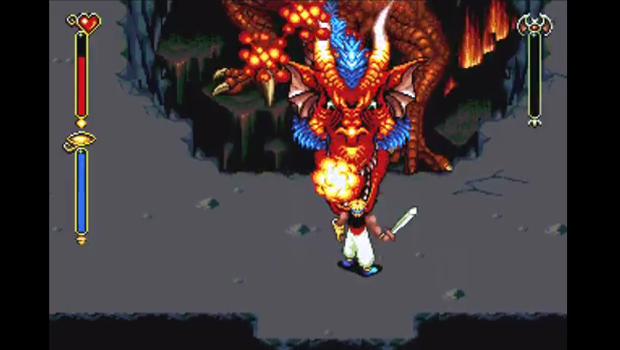
It may look like Prince of Persia, but the top-down action RPG Beyond Oasis was Sega's answer to The Legend of Zelda. You control Prince Ali, another hero of destiny who likes to raise newly found objects over his head.
Weekly digests, tales from the communities you love, and more
The game has great graphics and sound, and some of the goofiest walking, crouching, and jumping animations you'll ever see. From the way Ali struts, you'd think disco was going strong in the land of Oasis. Those animations only add to the game's charm, however, assuring it a spot in gamers' memories forever.
37. Shadowrun
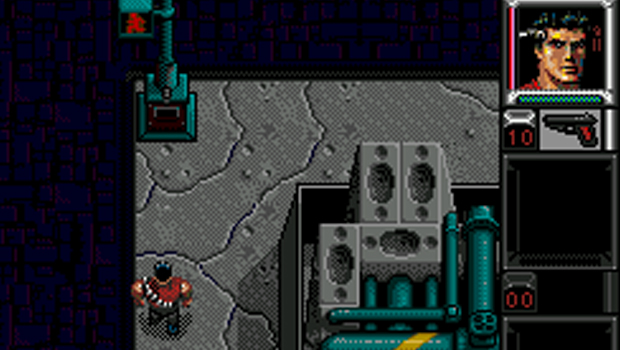
If you're after a snapshot of 90's cyber-geek culture in video-game form, don't pass up the Genesis version of Shadowrun, developed by future Vectorman masterminds BlueSky Software. The action RPG takes place in and around a futuristic Seattle warped beyond recognition by an event known as the Awakening, in which magic, elves, and everything else out of Dungeons & Dragons has suddenly returned to a technologically charged world.
Investigating a mystery with roots in the Awakening itself, you'll be called upon to hack computers, cast magic, fire a range of weaponry, and explore a world in which magic and technology warily coexist.
36. Mega Turrican
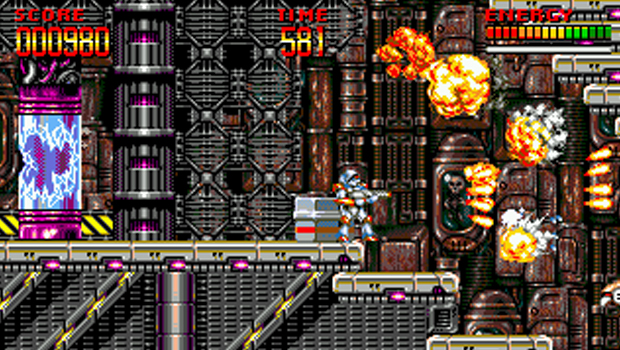
Factor 5's avenging-robot platform blaster had its origins on computers, and there's still more than a glimmer of that bedroom-coder pizazz on show in this Genesis original--which turned out so well that it was released on Amiga as the long-awaited Turrican III. Chris Huelsbeck's legendary soundtrack shows why Factor 5 would go on to become called-upon experts in the field of console sound design.
More than a straight run-n-gun, Turrican's explosive escapades may not have quite the exploratory depth that marked competitors like Metroid but that didn't stop the buff bot from borrowing many of the latter's best moves, such as the dexterity-testing Grapple Beam and bomb-laying Roll Ball.
35. Castle of Illusion
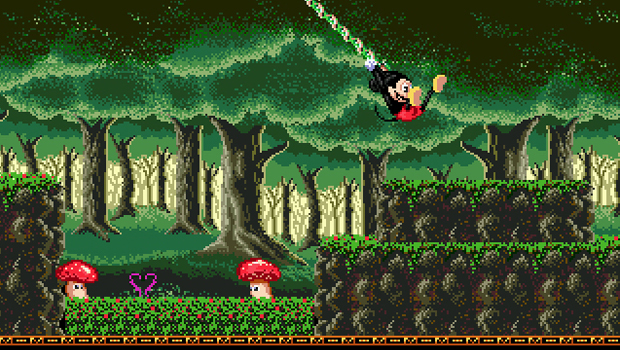
Mickey Mouse has starred in more games for young and old alike than you can name - but if you ask players to name one Mickey game, chances are this is the one they'll immediately call to mind. Taking cues from popular platformers of the day, Castle of Illusion alternates platforming and puzzle play to keep your thumbs and brains on the job.
Sega and Disney wraps the whole package in a technicolor Disney flair that's fondly remembered over 20 years later - so much so, in fact, that the game saw a 2013 remake under the supervision of original Illusion pioneer Emiko Yamamoto.
34. Golden Axe II
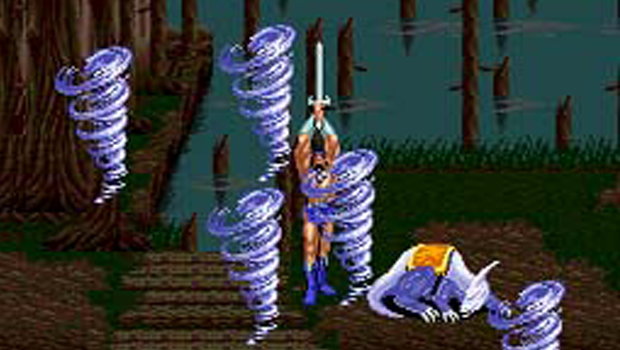
Boasting cover art from fantasy legend Boris Vallejo, Golden Axe II knows it has some big barbarian-boots to fill and wants you to know you're in good hands. Unlike the downscaled Genesis conversion of the seminal original, this sequel is an exclusive to Sega's 16-bit machine and designed to play to its strengths.
The gameplay is similar to Streets of Rage in that you slug your way from left to right through hordes of enemies, but the mountable creatures, varied fantasy levels, and pyrotechnic magical extravagances make this a distinctly different-feeling brawler.
33. Strider
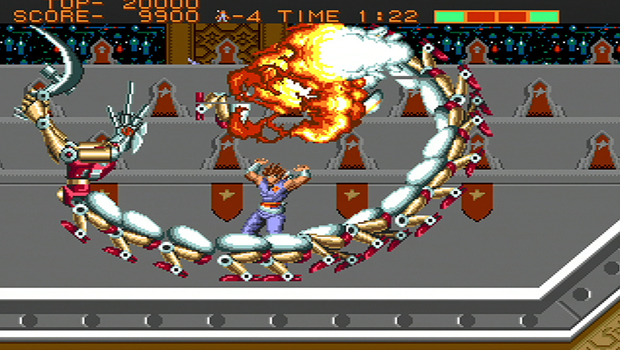
Capcom's futuristic ninja series has taken on many forms and, for a certain generation of gamer, the Genesis port is the most memorable. This recreation of the arcade version has Strider slashing cyborgs to pieces with his patented underarm swing, killing pseudo-Russians left and right. It is early '90s cool crystallized in one lovely cartridge.
For its era, Strider is pretty advanced, hyping its 8-megabit cartridge size on the front of the box. Later Genesis games would reach up to 24-megabits, but few titles on the system ever outdid Strider's fast-paced action and campy brand of ninjitsu.
32. Shining in the Darkness
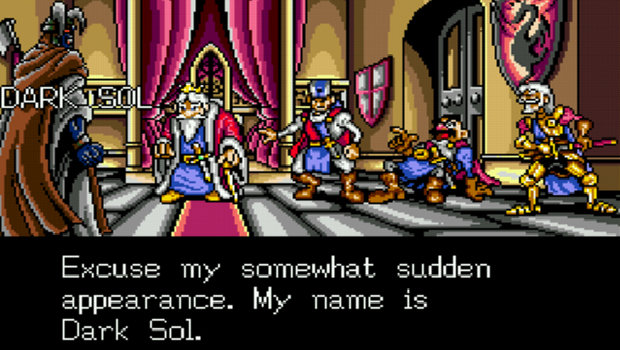
Taking inspiration from computer RPGs such as Wizardry and SSI's Gold Box series, the premiere entrant in Climax's acclaimed Shining series offers first-person play with a tactical depth to challenge your grasp of the genre. Writer/producer Hiroyuki Takahashi, hired off the back of producing games in Enix's Dragon Quest series, has said that he aimed for Shining to bring a "realism" to the genre.
The title's claustrophobic first-person dungeon-crawling certainly feels considerably more intimate than that offered by contemporaries such as Final Fantasy IV. Later entries in the series would forgo the first-person perspective but retain many of this games stylistic and gameplay innovations.

Sam Loveridge is the Brand Director and former Global Editor-in-Chief of GamesRadar. She joined the team in August 2017. Sam came to GamesRadar after working at TrustedReviews, Digital Spy, and Fandom, following the completion of an MA in Journalism. In her time, she's also had appearances on The Guardian, BBC, and more. Her experience has seen her cover console and PC games, along with gaming hardware, for a decade, and for GamesRadar, she's in charge of the site's overall direction, managing the team, and making sure it's the best it can be. Her gaming passions lie with weird simulation games, big open-world RPGs, and beautifully crafted indies. She plays across all platforms, and specializes in titles like Pokemon, Assassin's Creed, The Sims, and more. Basically, she loves all games that aren't sports or fighting titles! In her spare time, Sam likes to live like Stardew Valley by cooking and baking, growing vegetables, and enjoying life in the countryside.


